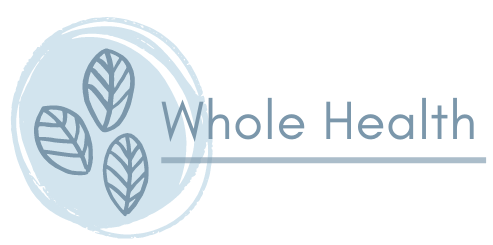The dirt on clean eating
By Samuel Peters
Clean eating: an approach described in broad terms as the exclusion of processed foods. Advocates promote foods that are “natural and wholesome—particularly foods that are free of chemicals, additives and preservatives, and refined, processed ingredients”. Sounds great in principle, but in practise, there are some nutritional concerns and behaviour patterns to be aware of.
Clean eating is a major consumer trend, with clean eating sites typically featuring some kind of attractive or captivating health expert or “guru”, sharing diet and lifestyle advice which is often claimed to change a person’s life or cure certain diseases. Of concern is the potential for harmful dietary advice to be given, or for individuals to replace medically necessary treatments with “clean eating” advice.[1] For example, one study demonstrated that many ‘healthy living’ blogs contain content that emphasises thin appearance ideals and unhealthy messages about food and nutrition.[2]
Clean eating recommendations are not necessarily healthier.
While there may be positive impacts from clean eating sites when delivering evidence-based and balanced information, there is cause for concern when this is not the case. For example it is common for clean eating sites or blogs to encourage the elimination of entire food groups, such as dairy or grains. Such guidelines, whilst necessary for certain individuals, are not in line with current evidence-based nutrition guidelines and can lead to nutritional deficiencies, increasing the risk for chronic disease long term.[1]
A recent study looked at the nutritional content of foods and recipes with clean eating claims and compared them to the nutritional content of foods without clean eating claims. Whilst the clean eating recipes contained more protein and fibre, there were no differences in other key metrics such as fat, sugar, carbohydrates, and sodium. Less than 10% of both types of recipes met the guidelines for recommended fat and sugar intake. The authors concluded that “Clean eating claims are potentially misleading for consumers who may believe these foods are healthy alternatives, potentially undermining people’s efforts to eat a healthy diet”.[3]
Clean eating blogs may lead to unhealthy eating behaviour.
In Australia, 44% of women use social media as a source of health information, and not surprisingly social media is one of the most common factors implicated in body dissatisfaction and disordered eating. When it comes to nutritional advice, some studies show that one quarter of women follow advice from websites or blogs promoting “clean eating”.[1]
Studies also suggest that women following “clean eating” practises are more likely to exhibit dietary restraint (i.e. restrict caloric intake or certain food groups). While dietary restraint is not a form of disordered eating, it can lead to more obsessive practices, with current research demonstrating that going on a diet is one of the strongest predictors of future incidence of developing an eating disorder.[1]
Research has also found that attractive blog content conveys a strong message of trustworthiness, and that the more a blog was considered trustworthy, the greater the likelihood the user would consume foods mentioned or recommended on it.[3]
However, unverified health advice like ‘clean eating’ in an unregulated social media environment with almost 2.5 billion users can be dangerous and costly if people believe and follow something that may not actually help them. In the most extreme cases, there are reports of serious health consequences as a result of micronutrient deficiencies, especially for children who have parents that follow and impose extreme healthy eating practices.[4]
Take home messages
Clean eating blogs and recipes are a great addition to an overall balanced diet, and provide benefits where they foster an overall focus and interest in healthy eating. However consumers should always seek nutrition advice from qualified professionals. A focus on long-term, sustainable healthy eating habits, rather than restrictive and nutritionally inadequate diets, will bring about the most health benefits.
The practitioners from Whole Health Online can help tailor a diet for you and your particular health concerns. Visit the online clinic to book your nutrition appointment.
References
[1] Allen, M., Dickinson, K. M., & Prichard, I. (2018). The Dirt on Clean Eating: A Cross Sectional Analysis of Dietary Intake, Restrained Eating and Opinions about Clean Eating among Women. Nutrients, 10(9), 1266. https://doi.org/10.3390/nu10091266
[2] Boepple, L., & Thompson, J. K. (2014). A content analysis of healthy living blogs: Evidence of content thematically consistent with dysfunctional eating attitudes and behaviors. International Journal of Eating Disorders, 47(4), 362-367.
[3] Dickinson, K. M., Watson, M. S., & Prichard, I. (2018). Are Clean Eating Blogs a Source of Healthy Recipes? A Comparative Study of the Nutrient Composition of Foods with and without Clean Eating Claims. Nutrients, 10(10), 1440. https://doi.org/10.3390/nu10101440
[4] Hunter, J. D., & Crudo, D. F. (2018). Unintended consequences of restrictive diets: two case reports and a review of orthorexia. Clinical pediatrics, 57(14), 1693-1695.

